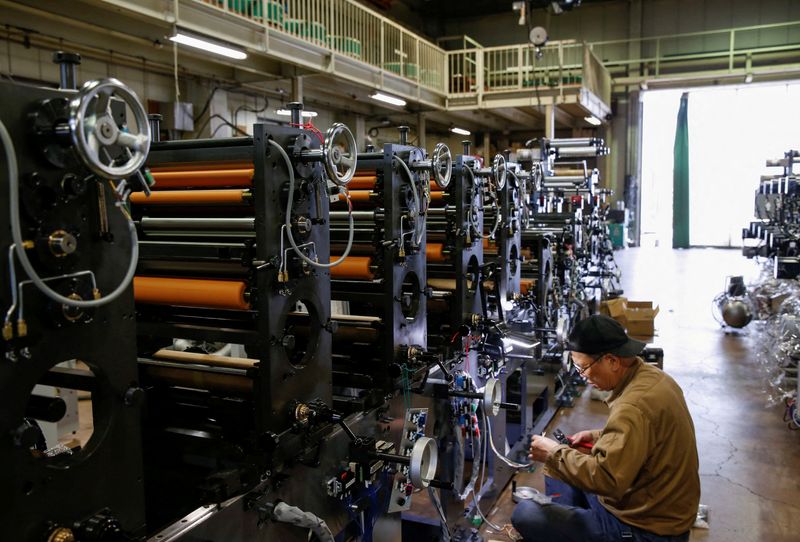Japan’s June factory activity eases as costs rise, PMI shows
2024.06.20 20:57
TOKYO (Reuters) – Japan’s factory activity expanded for a second straight month in June but the pace of growth eased as orders weakened and cost pressures intensified, a business survey showed on Friday.
The au Jibun Bank flash Japan manufacturing purchasing managers’ index (PMI) stood at 50.1 in June, down slightly from 50.4 in May, but still above the 50.0 threshold separating growth from contraction on a monthly basis.
“Japan’s private sector expansion stalled midway into the year,” said Jingyi Pan, economics associate director at S&P Global Market Intelligence, which compiled the survey.
But growth in the manufacturers’ output offered some room for optimism, she added.
The key subindex of output expanded in June for the first time since May 2023, the survey showed.
However, an index of new orders dipped in June from the previous month.
The pressure on margins for Japanese firms was concerning, Pan said.
Price pressures strengthened in the manufacturing sector as the average input costs and output prices increased at a faster pace in June than the previous month.
Manufacturers’ optimism in the next 12 months rose despite the slowdown in new orders, according to the survey.
Service sector business activity fell in June for the first time in about two years amid subdued new business.
The au Jibun Bank flash services PMI shrank to 49.8 in June from 53.8 in May. The index contracted for the first time since August 2022.
Japanese service providers suggested that output was limited due to labour constraints even as they continued to hire more staff.
The sector’s input cost inflation also rose in June but firms raised average charges at the slowest pace in seven months to support sales.

The au Jibun Bank flash Japan composite PMI, which combines both manufacturing and service sector activity, eased to 50.0 in June from 52.6 in May.
The Bank of Japan last week decided to start trimming its huge bond purchases and unveil a detailed plan in July, taking another step toward unwinding its massive monetary stimulus.







